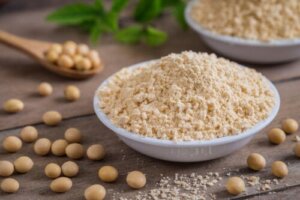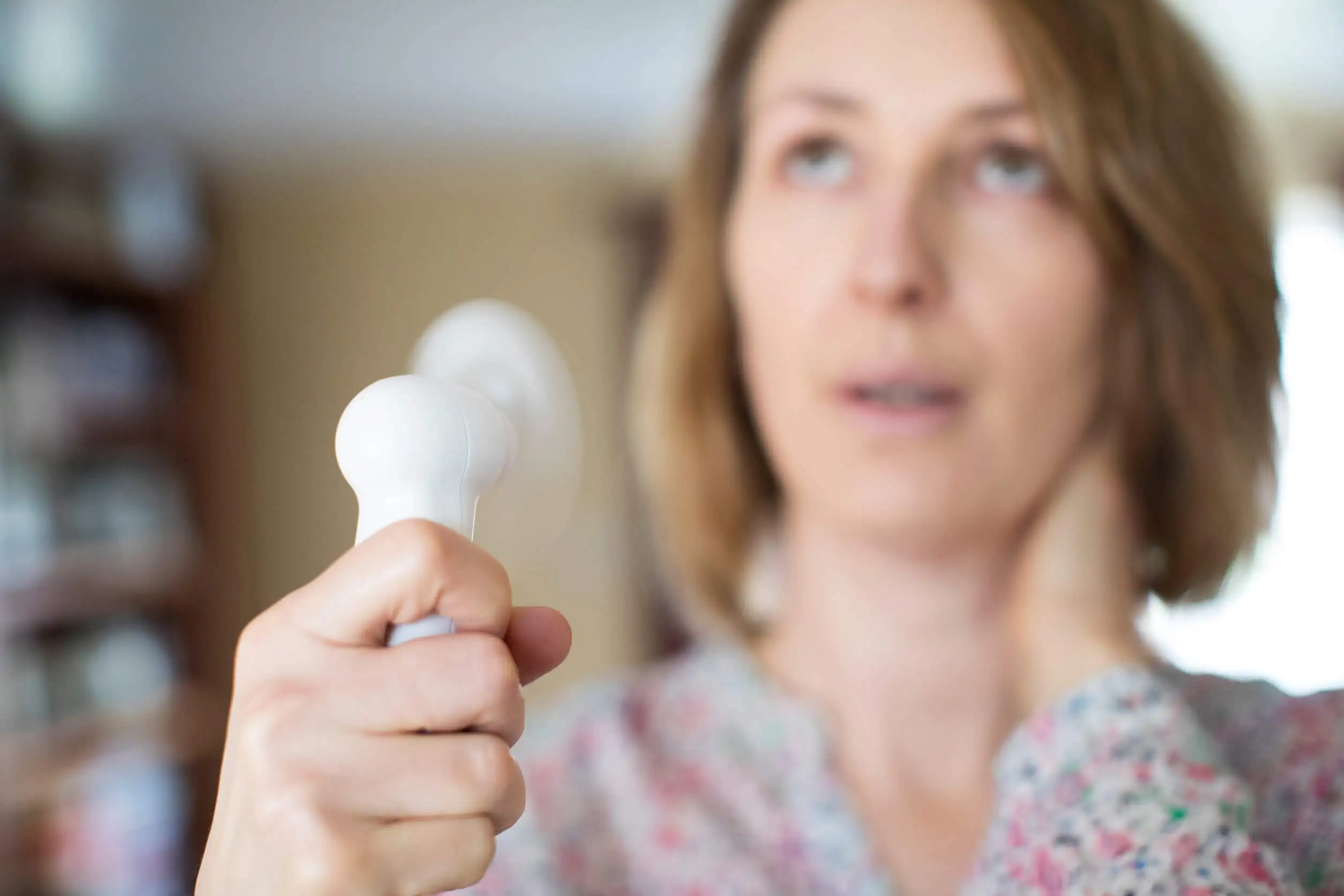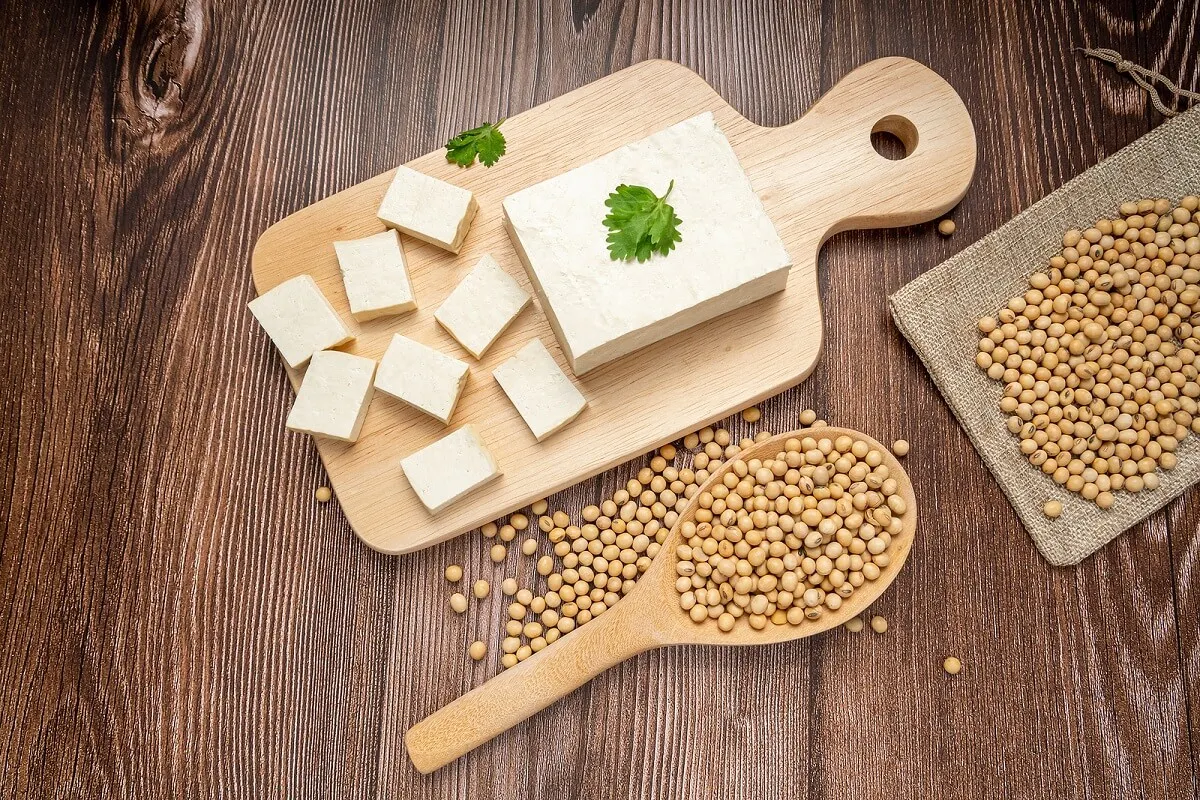Soy Isoflavones and Their Potential Health Benefits

Soy isoflavones are bioactive compounds of phenolic nature that are characterized by their phytoestrogenic and antioxidant action. They’re present both in the soybean plant (Glycine max) and in its by-products. In fact, they’re nowadays distributed as a nutritional supplement, due to their potential benefits.
According to a study published in the journal Nutrients, this phytochemical has shown benefits in hormonal balance, cardiovascular health, and osteoporosis prevention. Its intake is even associated with anti-diabetic and anti-tumor effects. Would you like to get to know more about it?
Soy isoflavones: uses and potential benefits
Soy isoflavones have the ability to bind to estrogen receptors in various cells and tissues. Because of this, they’re categorized as a “phytoestrogen”.
Thus, their assimilation in the body impacts hormonal, reproductive and metabolic health. Let’s see their main benefits in detail.
Read more: Delicious Vegan Soy Burger Recipe
Menopausal symptoms
One of the main applications of soy isoflavones has to do with menopause. In particular, they are used as a supplement to reduce symptoms such as nighttime hot flashes, depression, vaginal dryness and metabolic disturbances.
In fact, these benefits have been demonstrated in several studies. A review published in the journal Nutrients reported that isoflavones were useful in reducing menopausal hot flashes, as well as attenuating the loss of bone density, reducing blood pressure, and improving glycemic control at this stage.

Irritable bowel syndrome
Soy isoflavone supplementation is beneficial for patients with irritable bowel syndrome. This was determined by a trial shared in the Middle East Journal of Digestive Diseases, which reported that their intake decreases the symptoms of the disorder and generally improves the quality of life of affected patients.
High cholesterol
As mentioned above, isoflavones also have a positive impact on cardiovascular health. In particular, sources such as tofu, tempeh and other soy products have exhibited beneficial effects on the control of bad or LDL cholesterol.
A meta-analysis shared in The American Journal of Clinical Nutrition confirmed these effects. According to the researchers, soy protein with isoflavones helped improve lipid profiles. Not only did it reduce bad (LDL) and total cholesterol, but it also kept good cholesterol levels stable.
Type 2 diabetes
Soy isoflavone consumption supports the prevention and treatment of type 2 diabetes. According to a review shared in the International Journal of Molecular Sciences, this phytonutrient affects the proper functioning of organs involved in diabetes, such as the pancreas, liver, and adipose tissue.
A previous study shared in Food & Function showed similar results. In this one, researchers concluded that genistein – a type of isoflavone – has anti-diabetic effects and is a promising candidate as a complementary approach to prevent diabetes.
Osteoporosis
Soy isoflavones are not a first-choice treatment for osteoporosis. However, it’s still one of the most recommended nutritional supplements for the prevention of this disorder.
A review reported in the Journal of Medicinal Food reported that isoflavones decrease the loss of bone density caused by osteoporosis. In addition, an earlier study in the European Journal of Clinical Nutrition associated this supplement with stimulation of bone formation in menopausal women.
Breast cancer
Research findings on the role of isoflavones in breast cancer are controversial. While some suggest that a diet rich in soy may decrease the risk of this disease, other studies show that excessive soy intake increases the risks.
In this regard, it’s advisable to evaluate each particular case with a physician or nutritionist. In general, the occasional and moderate intake of soy and its derivatives doesn’t usually pose a problem.
Possible side effects of soy isoflavones
For most healthy adults, moderate consumption of soy isoflavones doesn’t pose a problem. Side effects are usually associated with prolonged intake of commercial soy isoflavone supplements. In general, dietary sources are well tolerated.
However, some undesirable reactions to their intake are as follows:
- Loss of appetite
- Gastrointestinal discomfort
- Constipation, bloating, and nausea
- Allergic reactions (skin rash, itching and, in severe cases, anaphylaxis)
However, a long-term intake of dietary isoflavones in childhood is associated with an increased risk of Kawasaki disease in children. Therefore, it should be avoided at these stages.
Among other things, excesses of this phytoestrogen can lead to abnormal growth of uterine tissue, as well as an increased risk of breast cancer.

Isoflavone content in soy and its derivatives
In general, the suggested amount of isoflavones ranges from 40 mg/day to 80 mg/day (optimal amount). However, intake of up to 100 mg/day is considered safe for up to 3 months.
It’s estimated that each 100 grams (4 oz) of soybeans and their derivatives provide the following amount of isoflavones:
- Soybean: 60-239 mg.
- Soybean meal: 60-235 mg.
- Soy protein: 45-200 mg.
- Soy milk: 1-31 mg.
- Tempeh: 43-63 mg.
- Tofu: 10-50 mg.
- Miso: 20-100 mg.
Read more here: Does Eating Soy Increase Your Risk of Breast Cancer?
What is there to remember about soy isoflavones?
Soy isoflavones are a type of phytoestrogen that’s linked to hormonal, metabolic, reproductive, and cardiovascular health benefits. Their moderate and occasional consumption can favor the prevention and treatment of some chronic diseases.
Even so, when it comes to taking them as a supplement, it’s best to consult a doctor or nutritionist. Keep in mind that, in some cases, it can be counterproductive.
[/atomik-in-text].In high or prolonged doses, the risk of adverse reactions increases.
All cited sources were thoroughly reviewed by our team to ensure their quality, reliability, currency, and validity. The bibliography of this article was considered reliable and of academic or scientific accuracy.
- Pabich M, Materska M. Biological Effect of Soy Isoflavones in the Prevention of Civilization Diseases. Nutrients. 2019 Jul 20;11(7):1660. doi: 10.3390/nu11071660. PMID: 31330799; PMCID: PMC6683102.
- Desmawati D, Sulastri D. Phytoestrogens and Their Health Effect. Open Access Maced J Med Sci. 2019 Feb 14;7(3):495-499. doi: 10.3889/oamjms.2019.044. PMID: 30834024; PMCID: PMC6390141.
- Chen LR, Ko NY, Chen KH. Isoflavone Supplements for Menopausal Women: A Systematic Review. Nutrients. 2019 Nov 4;11(11):2649. doi: 10.3390/nu11112649. PMID: 31689947; PMCID: PMC6893524.
- Jalili M, Vahedi H, Janani L, Poustchi H, Malekzadeh R, Hekmatdoost A. Soy Isoflavones Supplementation for Patients with Irritable Bowel Syndrome: A Randomized Double Blind Clinical Trial. Middle East J Dig Dis. 2015 Jul;7:170-6. PMID: 26396720; PMCID: PMC4560632.
- Taku K, Umegaki K, Sato Y, Taki Y, Endoh K, Watanabe S. Soy isoflavones lower serum total and LDL cholesterol in humans: a meta-analysis of 11 randomized controlled trials. Am J Clin Nutr. 2007 Apr;85(4):1148-56. doi: 10.1093/ajcn/85.4.1148. Erratum in: Am J Clin Nutr. 2007 Sep;86(3):809. PMID: 17413118.
- Kuryłowicz A. The Role of Isoflavones in Type 2 Diabetes Prevention and Treatment-A Narrative Review. Int J Mol Sci. 2020 Dec 28;22(1):218. doi: 10.3390/ijms22010218. PMID: 33379327; PMCID: PMC7795922.
- Gilbert ER, Liu D. Anti-diabetic functions of soy isoflavone genistein: mechanisms underlying its effects on pancreatic β-cell function. Food Funct. 2013 Feb;4(2):200-12. doi: 10.1039/c2fo30199g. PMID: 23160185; PMCID: PMC3678366.
- Zheng X, Lee SK, Chun OK. Soy Isoflavones and Osteoporotic Bone Loss: A Review with an Emphasis on Modulation of Bone Remodeling. J Med Food. 2016 Jan;19(1):1-14. doi: 10.1089/jmf.2015.0045. Epub 2015 Dec 15. PMID: 26670451; PMCID: PMC4717511.
- Ma, DF., Qin, LQ., Wang, PY. et al. Soy isoflavone intake inhibits bone resorption and stimulates bone formation in menopausal women: meta-analysis of randomized controlled trials. Eur J Clin Nutr 62, 155–161 (2008). https://doi.org/10.1038/sj.ejcn.1602748
-
Portman MA, Navarro SL, Bruce ME, Lampe JW. Soy isoflavone intake is associated with risk of Kawasaki disease. Nutr Res. 2016 Aug;36(8):827-34. doi: 10.1016/j.nutres.2016.04.002. Epub 2016 Apr 12. PMID: 27440537; PMCID: PMC4987172.
- Wood CE, Appt SE, Clarkson TB, Franke AA, Lees CJ, Doerge DR, Cline JM. Effects of high-dose soy isoflavones and equol on reproductive tissues in female cynomolgus monkeys. Biol Reprod. 2006 Sep;75(3):477-86. doi: 10.1095/biolreprod.106.052142. Epub 2006 May 24. PMID: 16723506.
This text is provided for informational purposes only and does not replace consultation with a professional. If in doubt, consult your specialist.








